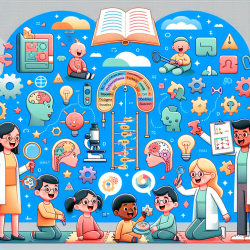As practitioners dedicated to improving the lives of children with developmental challenges, it is essential to continuously seek new knowledge and implement evidence-based strategies. A recent study titled Cognitive facet and paradigm of the caregivers of children with developmental problems in Eastern India offers valuable insights that can significantly enhance our practice.
The study, conducted in the Purulia district of West Bengal, India, surveyed 152 families with children (0-6 years) facing developmental challenges. The findings highlight several key areas where practitioners can make impactful changes:
- Awareness and Education: Over 70% of families lacked information about child development and available healthcare services. Practitioners should prioritize educating caregivers about developmental milestones, early intervention techniques, and local resources.
- Addressing Misconceptions: One in three families held misconceptions about developmental disabilities, viewing them as curses or jinxes. Practitioners must work to dispel these myths through culturally sensitive education and support.
- Gender Inequity: Female children with developmental problems were often further ostracized. Practitioners should advocate for gender equity in care and support for all children, regardless of gender.
- Early Intervention: Developmental delays were often not addressed until after the age of two. Emphasizing the importance of early detection and intervention can prevent long-term disabilities and improve outcomes.
- Community-Based Rehabilitation: The study supports the effectiveness of community-based rehabilitation (CBR) models. Practitioners should consider integrating CBR approaches to extend their reach to remote and underserved areas.
By integrating these findings into our practice, we can enhance the quality of care we provide to children with developmental challenges and their families. It is also crucial to stay updated with ongoing research and adapt our strategies accordingly.
To read the original research paper, please follow this link: Cognitive facet and paradigm of the caregivers of children with developmental problems in Eastern India.










